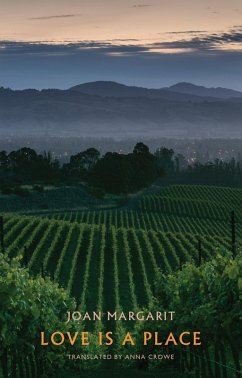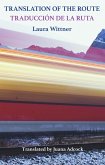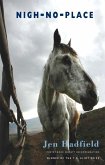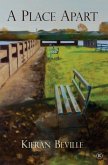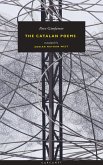Foreword by Sharon Olds.
Joan Margarit is one of Spain's major modern writers. Born in 1938, he worked as an architect and first published his work in Spanish, but for the past four decades has become known for his mastery of the Catalan language, and is now, arguably, Spain's most widely acclaimed contemporary poet. The melancholy and candour of his poetry show his affinity with Thomas Hardy, whose work he has translated.
In the much praised Tugs in the Fog: Selected Poems (Bloodaxe Books, 2006), Joan Margarit evoked the Spanish Civil War and its aftermath, the harshness of life in Barcelona under Franco, and grief at the death of a beloved handicapped daughter, reminding us that it is not death we have to understand but life. In his later collection, Strangely Happy (2011), he builds an architecture of the human spirit out of the unpromising materials of self-doubt, despair and death.
Now, in Love Is a Place
, which brings together his three most recent collections, he finds himself face to face with the prospect of his own death, while rediscovering love. 'Death is the final solitude,' he writes in 'On the ground', but the image at the end of the poem is one of hope, of love, and of home, not 'the skeleton with the scythe that Dürer engraved' but 'a brightly-lit window in a dark street.' The three collections see him moving from despair to self-knowledge, confronting his old demons with honesty and courage. Love, it seems, is not after all 'hard or far away', nor was the signal lost, because, in the poet's words,
Love is a place.
It endures beyond everything: from there we come.
And it's the place where life remains.
'I love these poems for many reasons. When I first read Joan Margarit, I heard a powerfully distinctive voice, a spirit of great freedom and energy, humaneness, mischief, and depth. In these naked, subtle, clear poems, surprise and wisdom are often right next to each other... Each of Margarit's poems is its own being, like a living creature with its own body-shape and voice, its own breath and heart-beat. His poems live and breathe in their natural habitat. They are elegant and shapely. And sometimes they seem almost overheard, as if they are singing in the voice the mind uses when talking with itself or with its close close other. It is common enough speech, and it is brilliant, too, sensually beautiful (but not too beautiful) and with a genuine, just-conceived feeling.' - Sharon Olds
'His work is time-haunted and death-haunted, but the poems also have a wonderful, clear, intelligent light in them. Margarit is perhaps firstly a love poet, and, readers can be assured, his loves are more often flesh and blood than steel.' - Carol Rumens, The Guardian
Joan Margarit is one of Spain's major modern writers. Born in 1938, he worked as an architect and first published his work in Spanish, but for the past four decades has become known for his mastery of the Catalan language, and is now, arguably, Spain's most widely acclaimed contemporary poet. The melancholy and candour of his poetry show his affinity with Thomas Hardy, whose work he has translated.
In the much praised Tugs in the Fog: Selected Poems (Bloodaxe Books, 2006), Joan Margarit evoked the Spanish Civil War and its aftermath, the harshness of life in Barcelona under Franco, and grief at the death of a beloved handicapped daughter, reminding us that it is not death we have to understand but life. In his later collection, Strangely Happy (2011), he builds an architecture of the human spirit out of the unpromising materials of self-doubt, despair and death.
Now, in Love Is a Place
, which brings together his three most recent collections, he finds himself face to face with the prospect of his own death, while rediscovering love. 'Death is the final solitude,' he writes in 'On the ground', but the image at the end of the poem is one of hope, of love, and of home, not 'the skeleton with the scythe that Dürer engraved' but 'a brightly-lit window in a dark street.' The three collections see him moving from despair to self-knowledge, confronting his old demons with honesty and courage. Love, it seems, is not after all 'hard or far away', nor was the signal lost, because, in the poet's words,
Love is a place.
It endures beyond everything: from there we come.
And it's the place where life remains.
'I love these poems for many reasons. When I first read Joan Margarit, I heard a powerfully distinctive voice, a spirit of great freedom and energy, humaneness, mischief, and depth. In these naked, subtle, clear poems, surprise and wisdom are often right next to each other... Each of Margarit's poems is its own being, like a living creature with its own body-shape and voice, its own breath and heart-beat. His poems live and breathe in their natural habitat. They are elegant and shapely. And sometimes they seem almost overheard, as if they are singing in the voice the mind uses when talking with itself or with its close close other. It is common enough speech, and it is brilliant, too, sensually beautiful (but not too beautiful) and with a genuine, just-conceived feeling.' - Sharon Olds
'His work is time-haunted and death-haunted, but the poems also have a wonderful, clear, intelligent light in them. Margarit is perhaps firstly a love poet, and, readers can be assured, his loves are more often flesh and blood than steel.' - Carol Rumens, The Guardian
Dieser Download kann aus rechtlichen Gründen nur mit Rechnungsadresse in A, D ausgeliefert werden.

